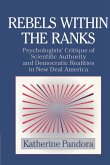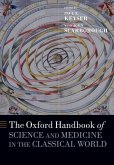Today the emotions are a topic of intense concern not only in the psychological and neurobiological sciences but among humanists and social scientists as well. The number of research publications in the field is enormous, and the interest generated by that research has spilled over into the public realm. Yet, for all this, there is no consensus as to the basic nature and workings of the emotions. On the contrary, disputes that can be traced back more than a hundred years continue to haunt. The situation is so fraught that, in spite of flourishing laboratories and thriving journals, the field appears to lack cumulative progress. Ruth Leys provides a genealogical analysis of what brought us to where we are today. Focusing on the period from the post-World War II revival of interest in the emotions to the present, she illuminates the debate and in the process sheds light on why so many of today's humanists and social scientists not only are drawn to the neurosciences but also embrace what she argues is the wrong picture of the emotions. An essential read for anyone seeking to understand the science of emotion.
Hinweis: Dieser Artikel kann nur an eine deutsche Lieferadresse ausgeliefert werden.
Hinweis: Dieser Artikel kann nur an eine deutsche Lieferadresse ausgeliefert werden.








